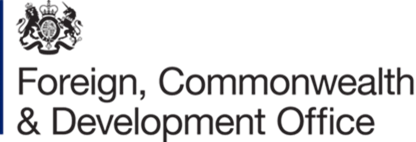United Kingdom / Germany George Weidenfeld Fellowship
The German-British Programme of the IJP was founded in 1995. It is of particular importance given the sometimes bizarre portrayals of the relationship between Germany and the UK in the media. Brexit has intensified this phenomenon and thus made a journalistic exchange between Great Britain and Germany even more important.
Every year, the bursary enables British and German journalists to spend time working in each other’s countries. Bursary holders work in British or German editorial offices of their choice and at the same time report for their home media. This way, the participants get to know the working methods of the media in the host country and gain a direct impression of politics, economy, culture and society in Germany or the United Kingdom.
The programme was founded in 1995. Since 2000, the programme has borne the name of the British publisher and publicist Lord George Weidenfeld (1919-2016). It is under the patronage of the respective ambassadors in Berlin and London.
Timeline
The programme usually begins with a three-day introductory event in London or Berlin. This is immediately followed by eight weeks working for a German or British outlet. Following the final conference, the fellows submit their journalistic work and a report of at least three pages.
Application
Applications are open to British and German journalists aged 18 to 40 who work as editors, trainees or regular freelancers for German or British media. British applicants should submit their CV with a passport photo, a recommendation letter by their supervisor, the head of department or chief editor, as well as four work samples and a statement of preference for certain media and/or locations. Further details on the application process can be found in the current call for applications.
Scholarship
Fellows of the programme receive a one-time payment of 3,800 Euros. The amount is intended to cover most of the travel expenses, food and accommodation. Fellows are expected to make a certain contribution of their own. Remuneration for the work on site is not envisaged


“Spending eight weeks on the financial news desk of the Frankfurter Allgemeine Zeitung was a tremendously rewarding experience. I felt immediately welcome, and was given every opportunity to contribute to the publication, both in print and online, as well as to collaborate on a weeks-long project with a fellow IJP bursar, Jurriaan van de Reep, whose stay in Frankfurt overlapped with mine. I can’t recommend applying to an IJP scholarship enough. Most journalism funds support specific reporting projects, IJP is far more open-ended: it is an opportunity to discover how journalism is done outside one’s home country, to meet dozens of fellow journalists from all over the world, and to build relationships both friendly and professional that no doubt will endure for years thereafter.”
Olivier Holmey, Stipendiat 2021



